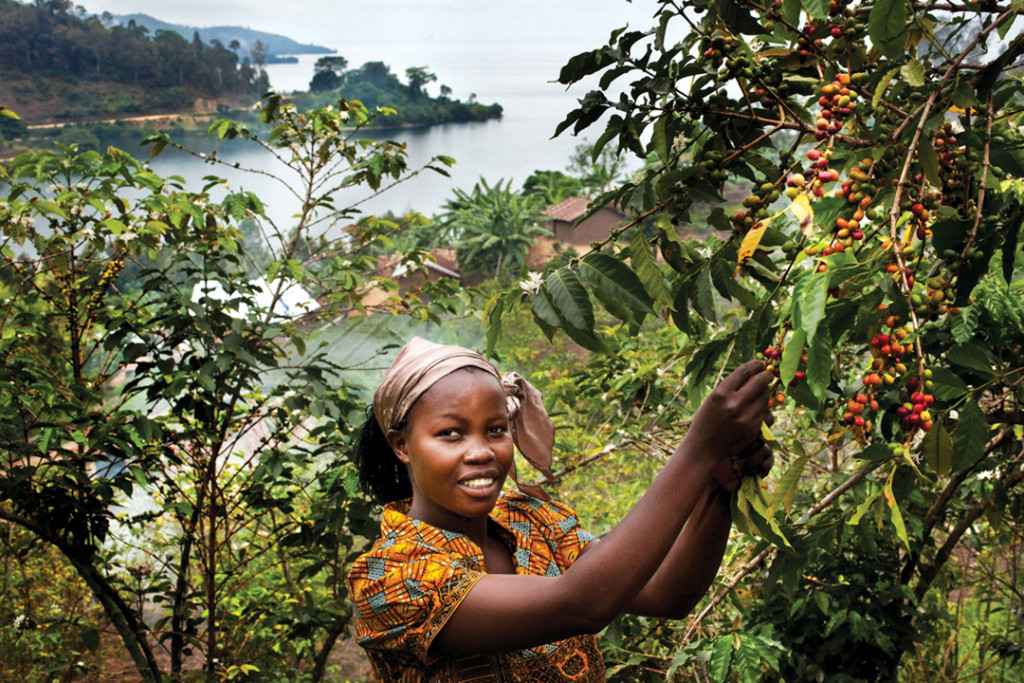In the mid-1980s, the Democratic Republic of the Congo (DRC) was officially exporting up to 130,000 tons of coffee per year, but by 2012 that figure had shriveled to 8,000 tons, owing to war, coffee disease, low prices and smuggling.
But international buyers of specialty, high-quality coffee started to realize they had been missing out. In 2012, the World Coffee Research Institute, after doing a survey of the two Kivu provinces in eastern DRC, described the area as “a paradise for coffee.”
That same year saw a Congolese coffee cooperative break into the world specialty market, helped by the United Kingdom-based fair trade organization called Twin. In June 2015, international experts held a specialty-coffee tasting competition in the eastern city of Bukavu to grade 30 coffee cooperatives.
According to the organizers, it was the first specialty-coffee competition ever in the DRC. The winning cooperative, like several other entrants, had been helped by consultants working for the nongovernmental organization Eastern Congo Initiative. Nonprofits get involved in the sector because much of eastern DRC’s coffee is produced by small farms under difficult conditions.
One of the ways Eastern Congo Initiative tries to help farmers is to lobby the DRC government on their behalf. In particular, coffee farmers are looking for tax breaks. The DRC’s export tax on coffee is 12 percent, compared with 1 percent in neighboring countries.

